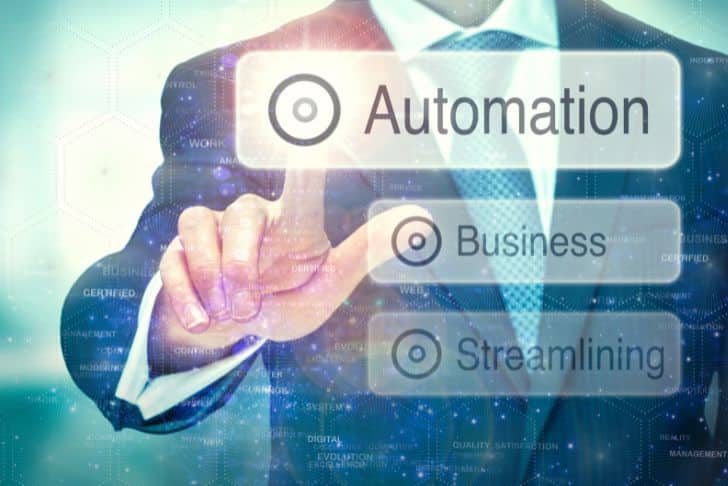“Unleashing Potential: Automating Your Employee Onboarding Checklist” sheds light on the importance of efficient employee onboarding through the use of automation. The article discusses ten practical strategies for implementing automation in the onboarding process that could significantly boost both the productivity and satisfaction levels of new employees. It emphasizes ways to ensure consistency, manage compliance, streamline communication, and offer personalized onboarding automation experiences through various digital tools and automations. This helps businesses make the most of their first interactions with new hires, setting the foundation for prosperous and mutually beneficial relationships.

The Importance of Effective Employee Onboarding
The onboarding process is a crucial transition period that can either make or break a new hire’s perception of the company. It’s the company’s chance to show the new employee that they’ve made the right decision in joining.
One-Chance Impression: The Critical First Impression of New Employees
Being the first experience a new hire has with your company’s internal workings, the onboarding process is your one shot at making a remarkable first impression. The smoother this process is, the better an employee’s overall look on the company is, emphasizing the need for efficient and effective onboarding.
The Role of Onboarding in Employee Retention and Productivity
The quality of an employee’s onboarding is directly tied to their productivity and levels of engagement within the company. If handled well, onboarding can set the pace for an employee’s tenure in your company, leading to improved retention rates and greater productivity.
Case Study: Automation in New Employee Onboarding at Google
Google exemplifies the impact automation can have on employee onboarding. By automating a simple task such as sending hiring managers an email with a new hire checklist and tips the day prior to orientation, Google improved new hire productivity by a month.
Implementing Automation in Employee Onboarding
By using technology, the onboarding process can be transformed into a much more manageable, efficient, and enjoyable procedure.
Understanding the Benefits of Automated Employee Onboarding
Automated employee onboarding can lead to a consistent and personalized experience. It can also keep HR teams informed about the status of onboarding tasks and provide them with feedback from new hires.
Identifying Areas of Automation within Employee Onboarding
Areas that can be automated include pre-hire paperwork, welcome messages, reminders for buddies, and alerts for incomplete tasks. Automation can also be used to gather feedback and check in on new employee milestones.
Setting Up an Automated Employee Onboarding System
Setting up an automated system requires first formalizing your onboarding process and then leveraging technology to automate repetitive tasks. The initial setup may require time but the subsequent efficiency makes it worth the investment.
Ten Ways to Automate Your Employee Onboarding
Once you’re ready to move forward with an automated onboarding system, here are ten ways to get started.
Leverage Templates and Reminders for Pre-Hire Paperwork
Sending out pre-hire paperwork with automated reminders can ensure all necessary documents are completed on time, reducing your compliance risk.
Using Pre-Written, Scheduled Texts for Welcoming New Hires
Pre-written, scheduled messages can give new hires a warm welcome and an idea of what to expect on their first day, building anticipation and excitement.
The Value of Formal Onboarding Processes in Automation
Formalized onboarding processes provide a structure for new hires, guiding them step-by-step, leaving minimal room for uncertainty or error.
Setting Up Automatic Template Messages and Reminders for Buddies
Buddy programs can help new hires settle in. Buddy relationships can be facilitated with automated reminders about meetings, check-ins, or other activities.
Leveraging Technology to Ensure Timely Actions and Alerts
Automated technology can alert HR to any uncompleted actions, encouraging prompt resolution and ensuring that onboarding timelines stay on track.
Ensuring Compliance and Accountability Through Automation
Automation also plays a significant role in ensuring that all compliance requirements are met in a timely manner, leaving no room for errors.
Automatically Alerting HR of Incomplete Actions
Alerts can be set up to inform HR of any incomplete tasks, ensuring that the onboarding process runs smoothly from start to finish.
Gathering Feedback Through Automated Communication Tools
Automation can facilitate the gathering of feedback from new hires. The insights gained from this feedback can be invaluable in refining the onboarding process.
Identifying and Checking-In on Key Milestones with Onboarding Technology
Automated onboarding technology keeps check-ins at key milestones (30, 60, 90, 120 days, and 1 year) on track, ensuring that new hires are progressing well and feel supported throughout their journey.

Using Automation to Enhance Interpersonal Connections
While automation can streamline processes, integrating it properly can also help foster connections between employees and the organization.
Establishing Stakeholder Commitments Using Automated Tools
Automated tools can support the development of relationships between stakeholders by making it easy to schedule commitments and encourage punctuality.
Automating Coaching, Follow-Ups, and Micro-Coaching for Managers
Automation can assist in creating follow-ups, reminders for coaching sessions, and “nudges” for managers to enhance the onboarding process, making them more effective leaders.
Automated ‘Nudges’ for Mangers to Ensure Efficient Onboarding
Automatic “nudges” can prompt managers to carry out their roles in the onboarding process effectively, ensuring no balls are dropped.
Tailoring the New Employee Experience through Automation
By taking advantage of automation, businesses can offer personalized onboarding experiences that build strong connections with new hires.
Personalizing Onboarding Experiences through Automation
With automation, onboarding experiences can be personalized to include activities, to-do lists, team member introductions, and more, all stored for easy access.
Storing and Accessing Onboarding Resources Efficiently and Conveniently
All resources required for the onboarding process, like forms, activities, checklists, etc., can be stored in a central location for easy access and management.
Automation as a Tool for Managerial Development and Learning
Automation can provide managers the time and space they need to cultivate their skills, and become better leaders by eliminating time spent on repetitive tasks.

Monitoring and Evaluating Onboarding Automation
Evaluating and monitoring the success of your automated onboarding system is crucial to ensure it continues to meet your employees’ needs.
Evaluating the Success of Onboarding Automation
An efficient automated onboarding process should lead to quicker integration of new hires into their teams, leading to increased productivity and reduced turnover.
Using Dashboards and other Tools to Monitor Usage and Efficacy of Automation
Tools like dashboards provide quick snapshots of who is using the system, how it’s being used, and the overall efficacy of the automated onboarding process.
The Role of Feedback in Refining Automated Onboarding Systems
Feedback gathered through automation can be used to refine and improve the system, ensuring it remains beneficial and effective for new hires and the company.
The ROI of Automating Employee Onboarding
The benefits of automation far outweigh the initial investment needed to set up and fine-tune the system.
Understanding the Investment of Automated Onboarding
The investment in automated onboarding needs to be viewed as a strategic expenditure that will significantly reduce the time and resources spent on onboarding, and provide new employees with a better start which in turn leads to higher retention and productivity.
Projecting the Long-Term Benefits of Investing in Automation
Automation, though it may require an initial investment, leads to significant long-term benefits such as increased efficiency, improved employee satisfaction, improved compliance, and ultimately, better results.
Case Study: Impacts of Automation on Onboarding Efficiency and Effectiveness at Scoot Air
Scoot Air’s successful automated onboarding process exemplifies the impact on efficiency and effectiveness that automation brings to the onboarding process.
Comparing Common Onboarding Automation Tools
There are numerous automation solutions available. Here’s a brief overview of three solutions- SuccessFactors, Workday, and Oracle.
SuccessFactors Overview and Key Features
SuccessFactors is a comprehensive solution that provides automated onboarding amongst other features, creating seamless experiences for new hires.
Workday: An Examination of Its Onboarding Automation Capabilities
Workday provides a flexible, cloud-based HR solution. Its onboarding module can automate and streamline many tasks associated with the onboarding process, aiding in a smooth transition for new hires.
Oracle: Its Strengths in Delivering Automated Onboarding Experiences
Oracle’s powerful HR software supports the entire employee life cycle, including onboarding. Its automation capabilities help to create meaningful onboarding experiences.
Conclusion: The Indispensable Role of Automation in Onboarding
The Future of Employee Onboarding: Automation and Technological Integration
Automation is the future of onboarding, enabling companies to streamline the process, creating personalized and enjoyable experiences for new employees.
Ensuring Success for New Hires through Automated Onboarding
Successfully integrating automation into your onboarding process can set the stage for new employees’ success in your company, leading to higher retention rates, improved productivity, and overall growth of your company.
Investing in People through Automation Technology
Investing in automated onboarding equates to investing in your people. It is an indicator of the importance your company places on the well-being and success of its employees, leading to a more engaged and productive workforce.
